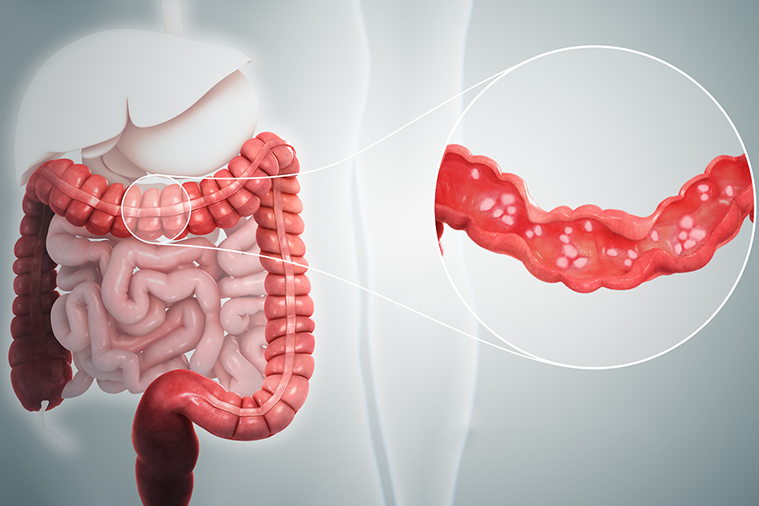What Is Ulcerative Colitis?
Ulcerative colitis is an autoimmune condition where the body’s immune system mistakenly attacks healthy tissues in the colon, causing inflammation and ulcers. Unlike Crohn’s disease, which can affect any part of the gastrointestinal tract, ulcerative colitis is limited to the large intestine.
Common Symptoms
-
Persistent diarrhea, often with blood or pus
-
Abdominal pain and cramping
-
Urgency to defecate
-
Weight loss and fatigue
-
Rectal bleeding
Symptoms may vary in severity and can come and go in cycles of flare-ups and remission.
Diagnosis and Risk Factors
Doctors diagnose ulcerative colitis through a combination of stool tests, blood work, colonoscopy, and imaging scans. Risk factors include genetics, immune system malfunctions, and environmental triggers such as diet or stress.
Treatment Options for Ulcerative Colitis
There is no known cure for ulcerative colitis, but various treatments can help control symptoms and induce remission:
Medications
-
Aminosalicylates (5-ASAs): Help reduce inflammation in the intestinal lining
-
Corticosteroids: Short-term use for flare-ups
-
Immunosuppressants: For long-term disease control
-
Biologics: Such as infliximab or vedolizumab, target specific immune responses
Lifestyle Adjustments
-
Low-residue diets to reduce flare-ups
-
Stress management techniques
-
Regular exercise and sleep hygiene
In severe cases, surgery to remove part or all of the colon may be necessary.
Living with Ulcerative Colitis: Tips and Support
Managing ulcerative colitis requires ongoing collaboration with healthcare providers. Joining support groups, tracking symptoms, and maintaining a medication schedule are crucial steps toward managing the disease effectively.
Consider reading more from the Crohn’s & Colitis Foundation for updated guidance and patient resources.
Final Thoughts
Ulcerative colitis can be a life-altering condition, but with early diagnosis and a tailored treatment plan, most people lead full and active lives. Work closely with a gastroenterologist to explore the most effective care options for your needs.

